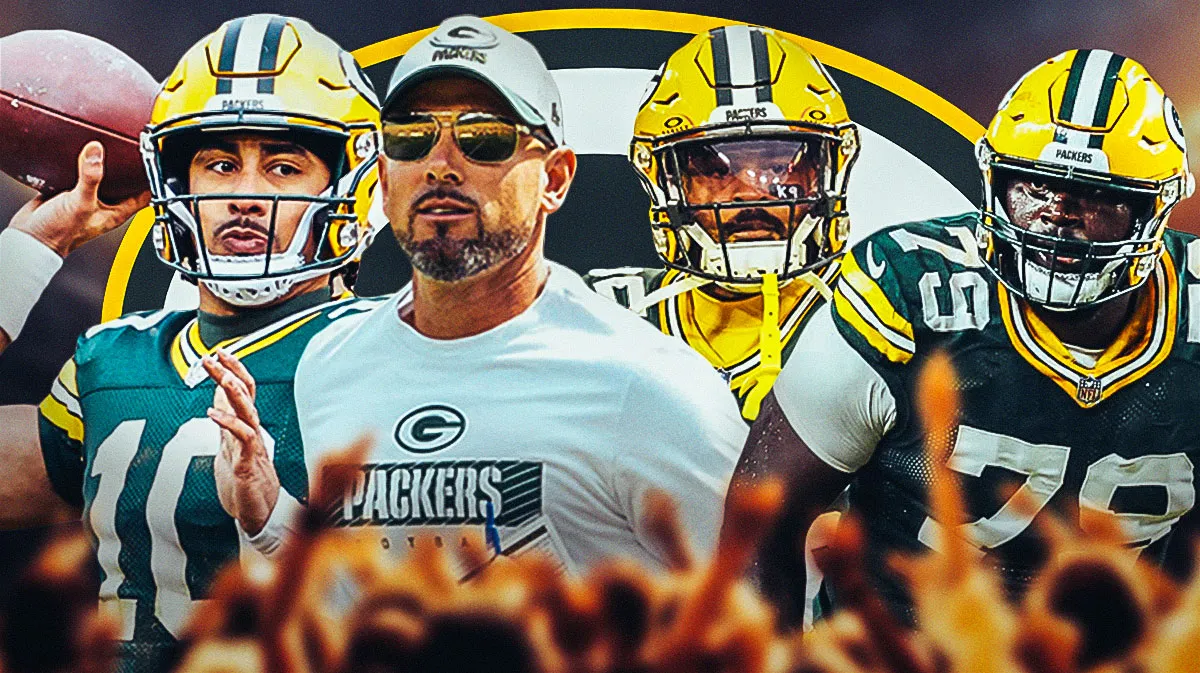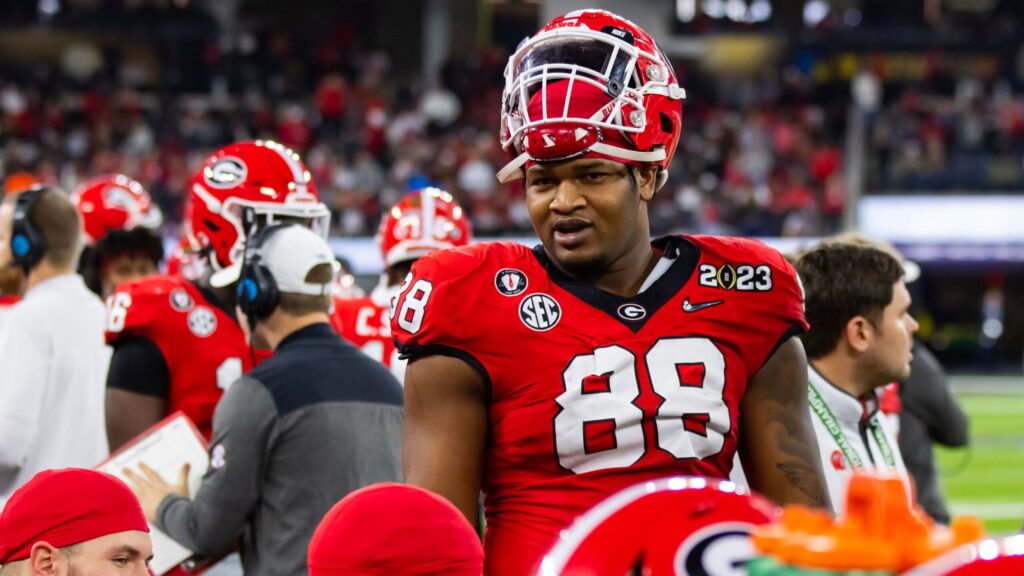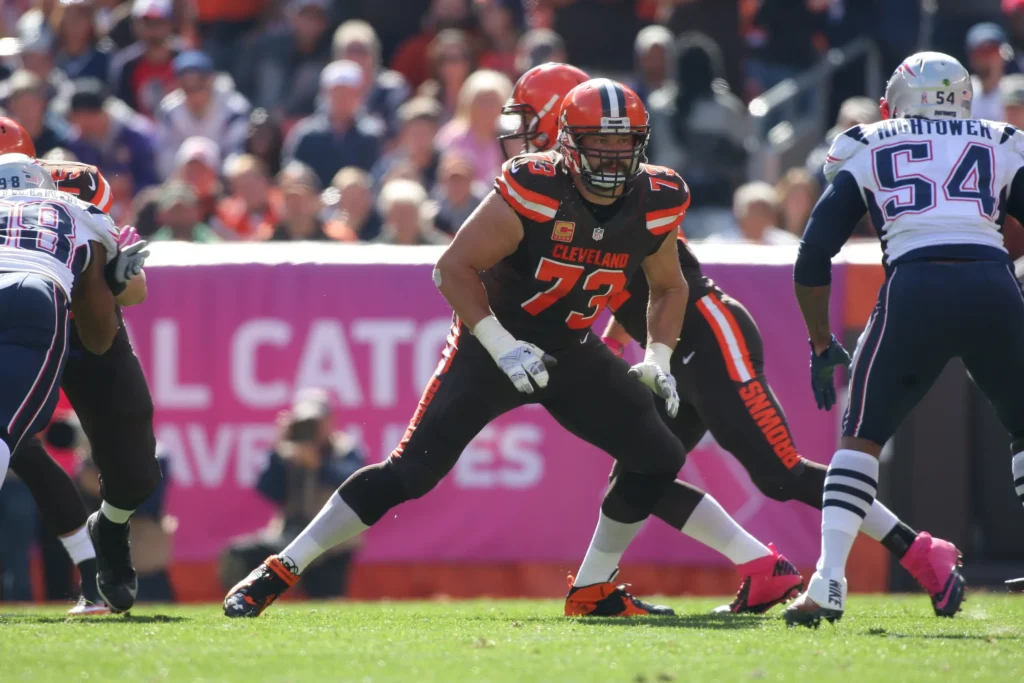
In a moment that could have lasting consequences on the NFL’s reputation, the league officially acknowledged a critical officiating mistake during the recent Packers vs. Eagles playoff showdown — a game that was ultimately decided by a controversial no-call in the final minutes.
The fallout has been immediate and fierce, with fans, players, analysts, and even former referees weighing in on what many see as another stain on the league’s credibility. But this isn’t just another missed call — it’s a flashpoint that may finally force systemic change within the NFL’s officiating system.
Let’s take a closer look at what happened, why it matters, and what it signals for the future of professional football.
What Happened in the Packers-Eagles Game?
With under two minutes remaining, the Green Bay Packers were trailing the Philadelphia Eagles by four points but had driven deep into Philadelphia territory. On a crucial 3rd-and-7 play, Packers quarterback Jordan Love threw a pass to wide receiver Christian Watson, who appeared to be clearly impeded by an Eagles defender before the ball arrived.
Replays showed obvious pass interference — contact that should have drawn a flag and granted the Packers a first down inside the 10-yard line. Instead, the referees kept the flags in their pockets, forcing Green Bay to attempt a long field goal, which they missed. The Eagles took possession and ran out the clock, ending the Packers’ season.
The sequence left Packers players visibly frustrated, with head coach Matt LaFleur criticizing the no-call in his postgame press conference without directly blaming the officials.
By the next morning, the NFL issued a rare public statement admitting that the officials had missed a clear defensive penalty.
NFL’s Statement: Rare Admission, Lingering Doubts

The league’s statement read:
“Upon thorough review, the officiating department has determined that defensive pass interference should have been called on the third-down play late in the fourth quarter. We recognize the impact that this officiating error had on the game’s outcome and are committed to evaluating procedures to improve accuracy in critical situations.”
While the admission was appreciated by some, for many it only added fuel to an already raging fire. Acknowledging an error after the fact does little to comfort a team whose Super Bowl hopes were dashed by the mistake.
The Bigger Problem: NFL’s Longstanding Officiating Woes
The NFL has long struggled with officiating controversies, especially during pivotal playoff moments. Here’s just a glimpse into the league’s recent history of officiating disasters:
- 2018 NFC Championship Game (Saints vs. Rams): A blatant missed pass interference call led to a Rams victory and prompted short-lived rule changes allowing PI reviews.
- Tuck Rule Game (2001 Patriots vs. Raiders): A controversial rule interpretation helped launch the Patriots dynasty.
- Dez Bryant Catch No-Catch (2015 Cowboys vs. Packers): A reversed catch call changed the trajectory of that playoff game and led to years of catch rule debates.
Each controversy has brought temporary fixes — yet true reform has been elusive.
Why Are NFL Officiating Errors So Common?
Several factors contribute:
- Human Error: Even the best referees miss calls in the heat of the moment.
- Inconsistent Rule Interpretations: Rules like pass interference and roughing the passer often rely heavily on subjective judgment.
- Lack of Full-Time Officials: NFL referees are not full-time employees, leading some critics to argue they aren’t given sufficient resources or training.
- Resistance to Technology: The league has been cautious about integrating real-time video review for penalties.
Expert Reactions: Calls for Overhaul

Football experts, former officials, and players had strong reactions after the Packers-Eagles debacle:
- Mike Pereira (former VP of NFL officiating): “At some point, the NFL has to accept that humans need help. Technology should correct clear and obvious errors.”
- Aaron Rodgers (former Packers QB, now with the Jets): “You fight all season for a shot at the Super Bowl, and then it comes down to a judgment error? It’s unacceptable.”
- Troy Aikman (Fox Sports analyst): “It’s time for a real-time sky judge system, especially in the playoffs where careers and legacies are on the line.”
What Changes Could Be Coming?
Following the controversy, the NFL Competition Committee is reportedly preparing to propose significant changes this offseason, such as:
| Proposed Change | Description |
| Sky Judge System | A dedicated official watching the broadcast feed in real-time to correct obvious errors. |
| Expanded Replay | Allowing coaches to challenge any judgment call (including pass interference and holding). |
| Automatic Reviews in Final Two Minutes | Mandatory booth reviews of penalties or no-calls in the final minutes of close games. |
| Full-Time Officials | Moving all referees to full-time positions with year-round training and evaluations. |
Will these changes come fast enough to restore fan trust? That remains the biggest question.
Did the Game Start with an Officiating Error Too?
A Reddit thread has pointed out a possible officiating mistake at the very beginning of the Packers-Eagles playoff game. According to fans, the error may have involved a missed penalty or incorrect spot that gave the Eagles an early advantage. While most of the spotlight has been on the no-call in the final minutes, this early mistake raises concerns about officiating accuracy throughout the game.
If errors happened from start to finish, the Packers may have faced more than just one bad call.
Some users argue this error shifted early momentum. Others say it shows a broader failure in game management. If true, this adds more weight to calls for systemic officiating reform.
Packers’ Reaction: Frustration but Focus on Future
Despite their bitter exit, the Packers organization has chosen to take the high road publicly. Coach Matt LaFleur said:
“We can’t control the calls. What we can control is how we respond. We’ll learn from this, and we’ll come back stronger next year.”
Still, behind the scenes, insiders report that Green Bay’s leadership will push hard during the NFL’s owners’ meetings for officiating reforms.
FAQ’s
1. Why did the NFL admit the officiating error in the Packers-Eagles game?
The NFL admitted the error after widespread backlash from fans, players, and analysts who pointed out clear video evidence of missed pass interference. Acknowledging such a mistake helps the league show transparency, even though it doesn’t change the outcome of the game.
2. Can NFL playoff games be overturned due to officiating mistakes?
No, NFL rules do not allow playoff game outcomes to be overturned once the game is officially concluded, even if a major officiating error is later admitted. The results stand as final, and teams have no legal recourse through the league.
3. How often does the NFL admit to officiating mistakes?
While officiating errors are relatively common, public admissions by the NFL are rare. Typically, such admissions only happen when overwhelming evidence and media pressure make it impossible to avoid acknowledgment, especially during the playoffs.
4. What is a “sky judge,” and could it have prevented the Packers-Eagles mistake?
A “sky judge” is a proposed officiating position where a referee monitors the game in real time from the booth, using television angles to correct obvious errors. Had a sky judge been in place, they could have intervened immediately to call the missed pass interference in the Packers-Eagles game.
5. What changes is the NFL considering to prevent future officiating errors?
Following the Packers-Eagles controversy, the NFL is exploring several solutions, including expanding replay reviews, introducing a sky judge system, making more referees full-time employees, and allowing coaches to challenge penalty calls or non-calls during critical moments.
Final Thoughts: Is the NFL Losing Its Integrity?
The NFL admitting to a costly officiating error in such a pivotal moment isn’t just another headline — it’s a warning sign. When fans, players, and coaches begin to believe that outcomes are determined not by performance but by officiating mistakes, the very foundation of the league’s integrity is at risk. Football is a game of inches, of blood, sweat, and strategy. It deserves better than outcomes marred by preventable human errors. The ball is now in the NFL’s court. Will they implement real change, or will history repeat itself once again? Either way, for Packers fans, players, and coaches — this playoff heartbreak will sting for a long time.







